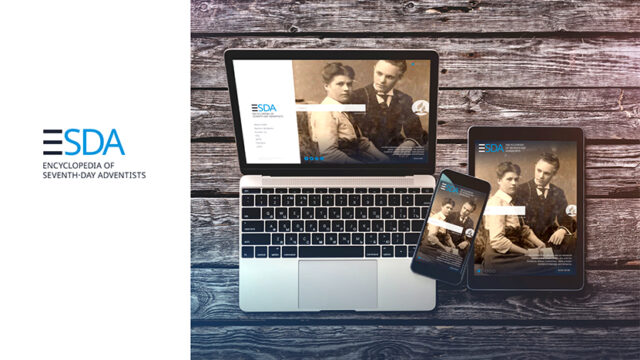By finding the hidden treasure or pearl of great value, you can find what your inner being desires the most—a renewed heart that becomes loyal to God.

“Again, the kingdom of heaven is like treasure hidden in a field, which a man found and hid; and for joy over it he goes and sells all that he has and buys that field” (Matt. 13:44).
Human Arguments
Being a disciple of Jesus is beautiful, but it’s not free. Some may ask: Why does following Jesus need to cost anything? What exactly do we need to pay to become His followers? Is not God rich enough to provide for us and allow us to follow Him free of charge? He owns everything (Ps. 50:10); therefore He should understand our situation and accept us as we are. Other people would bargain, “I pay, and you provide.” In this situation, God would obey them because they dictate the rules.
It does not matter what your arguments are regarding the cost of following Jesus; the fact is, He does not need your money. What He needs is you giving Him your sin-polluted heart because it is your most precious possession. Jesus wants “to purify, to cleanse [it] by His own blood, and to save [you] by His matchless love. And yet men think it is hard to give up all!”1
Jesus’ Teachings
Jesus’ ministry on this earth was characterized by touching people’s hearts with the gospel and changing them according to the standards of God’s kingdom. The purpose of the parables was to disclose the heavenly realities in an earthly language so that even ordinary people could grasp some glimpse of eternal value. Thus, in His illustrative teachings, Jesus expounded that if you want to follow Him and be His disciple, you will have to pay the price.
Among the seven parables in Matthew 13, two specifically reveal the cost of discipleship. In the parable of the hidden treasure (verse 44) and the parable of the pearl of great price (verses 45, 46), Christ presented the value of the kingdom of God that is available to those who wish to be a part of it. When we find something valuable, we sell everything we own and spare nothing to obtain it. When we discover that God loves us beyond measure and that the eternal life He gives can be ours, we leave behind everything to obtain that life with Him.
Biblical Examples
The 12 disciples left behind their livelihood and families to follow their Master. To Peter’s inquiry about the benefits of such a great sacrifice, Jesus responded by saying, “Everyone who has left houses or brothers or sisters or father or mother or wife or children or lands, for My name’s sake, shall receive a hundredfold, and inherit eternal life” (Matt. 19:29). While the cost is great, Christ does not demand to despise your family members, though you may find yourself at odds with them. The accent here is on priorities. His disciples should love Him more than relatives, possessions, business, or anything else. Nothing should shadow our love for God.
Peter’s choice of following the Lord and inviting others to do the same reveals not only his love and dedication to God (John 21:17) but also his sacrifice for Christ’s sake (Acts 5:40, 41; 12:4), which culminated in his crucifixion upside down. He had many bright moments in life, however, such as his wife’s total support (1 Cor. 9:5), seeing others turning to God (Acts 2:38, 41), and the promise of eternal life (1 Peter 1:3-9).
The Samaritan woman at the well’s decision to follow Christ cost her public exposure of the dark side of her reputation (John 4). Having had five husbands and living with another male partner was enough to avoid unnecessary meetings with women at the well when they fetched water. This could be the reason she was there alone at the hottest hour of the day. But it was an opportune time for Jesus to meet her and change her life for good. After conversing with the Savior, the woman who had been hiding from her countrymen ran to them, proclaiming, “Come, see a Man who told me all things that I ever did” (verse 29).
The encounter with Christ revealed eternal truth to the hungry soul and gave “a new expression on her face, a change in her whole appearance.”2 The cost of giving up a life of sin was never regretted. She became a newborn follower of Jesus and a missionary. This woman’s conversion opened a door for Christ to minister to the Samaritans (verses 39-42). True discipleship is costly because it condemns sin; it is beneficial because it justifies the sinner.
Luke presents a similar story about Zacchaeus’ conversion (Luke 19). Everyone hated this chief tax collector, who cheated people and accumulated wealth from his countrymen. Hearing of Jesus and His miraculous power, Zacchaeus went to listen to Him. Jesus’ love convicted Zacchaeus as he sat, hidden in a sycamore tree. He was overwhelmed by a sense of his own unworthiness.
The Holy Spirit’s influence converted his soul and made him discard his dishonest practices. While it cost Zacchaeus his earthly riches, it was a joy for him to open his heart to the Christ’s love. The man’s genuine repentance led to a complete reformation of his life. Thus, by losing earthly values, he gained peace, his family, and eternity (verse 9). Ellen White says that “it is when Christ is received as a personal Saviour that salvation comes to the soul.”3 Is there anything else that can be more valuable than this?
Conclusion
By finding the hidden treasure or pearl of great value, you can find what your inner being desires the most—a renewed heart that becomes loyal to God. Therefore, Solomon reminds you, “Keep your heart with all diligence, for out of it spring the issues of life” (Prov. 4:23). The cost of discipleship is entirely reasonable considering the gift of abundant life here with sufferings for Christ’s sake (Phil. 1:29), and life in eternity through Him. There is no better deal than this. Choose to pay the cost; choose God!
1 Ellen G. White, Steps to Christ (Mountain View, Calif.: Pacific Press Pub. Assn., 1956), p. 46.
2 Ellen G. White, The Desire of Ages (Mountain View, Calif.: Pacific Press Pub. Assn., 1898, 1940), p. 191.
3 Ibid., p. 556.








